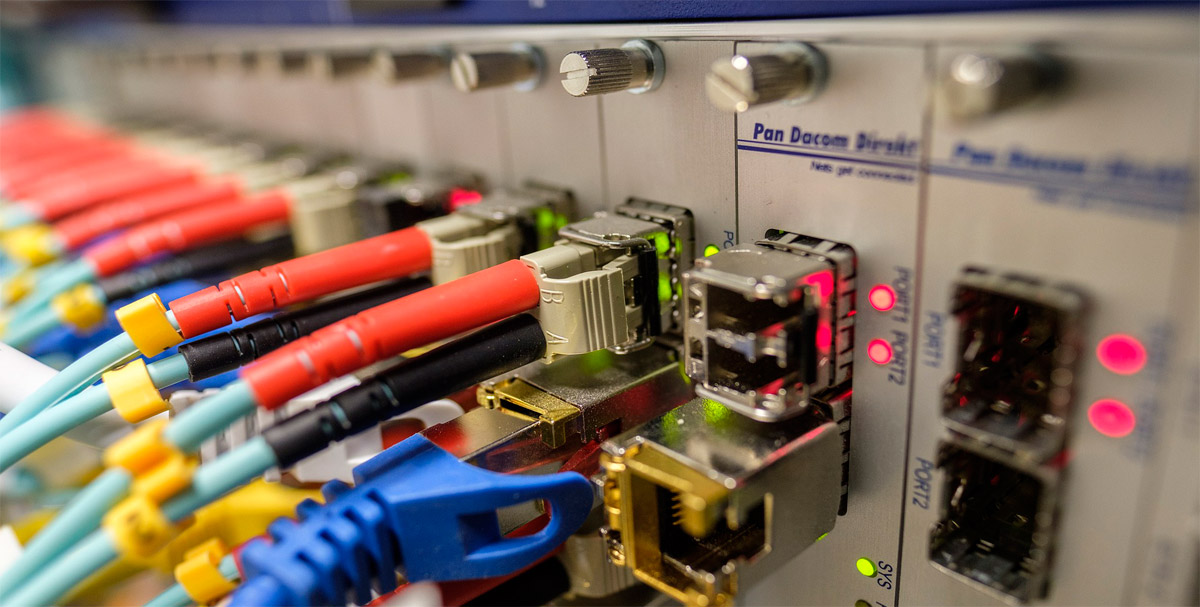When choosing an internet connection, the debate between fiber internet and WiFi often comes up. Both have their merits, but they serve different purposes, and understanding their differences is key to determining which is “better” for your needs. This article explores the distinctions between fiber internet and WiFi, comparing their speed, reliability, and use cases to help you make an informed decision.
What Is Fiber Internet?
Fiber internet is a type of broadband connection that uses fiber-optic cables to transmit data as pulses of light. These cables are made of thin strands of glass or plastic, allowing data to travel at incredibly high speeds over long distances with minimal signal loss. Fiber internet is typically delivered directly to your home or business, offering a wired connection known for its speed and reliability.
What Is WiFi?
WiFi, on the other hand, is a wireless technology that allows devices like smartphones, laptops, and smart TVs to connect to the internet without physical cables. WiFi works by transmitting data over radio waves from a router, which is connected to a broadband service like fiber, cable, or DSL. Essentially, WiFi is a way to distribute an internet connection wirelessly within a specific area, such as your home or office.
Key Differences Between Fiber Internet and WiFi
To determine whether fiber internet is better than WiFi, it’s important to clarify that they’re not directly comparable in the same way. Fiber internet refers to the type of internet connection, while WiFi is a method of accessing that connection wirelessly. However, for clarity, we’ll compare fiber internet (typically used with a wired connection) to WiFi as a means of accessing the internet.
1. Speed
Fiber internet is renowned for its blazing-fast speeds, often reaching up to 1 Gbps (gigabit per second) or more for both downloads and uploads. This makes it ideal for bandwidth-intensive tasks like streaming 4K videos, online gaming, or transferring large files. Since fiber uses light to transmit data, it experiences minimal latency, ensuring a smooth online experience.
WiFi speeds, however, depend on the underlying internet connection (e.g., fiber, cable, or DSL) and the quality of the WiFi router. Even with a fast fiber connection, WiFi can introduce bottlenecks due to signal interference, distance from the router, or device limitations. Modern WiFi standards like WiFi 6 can deliver impressive speeds, but they rarely match the consistency of a wired fiber connection.
Verdict: Fiber internet offers superior speed and consistency, especially for wired connections, while WiFi speeds vary based on multiple factors.
2. Reliability
Fiber internet is highly reliable because it’s less susceptible to environmental factors like electrical interference or weather conditions. Fiber-optic cables are also more durable than traditional copper cables used in DSL or cable internet, making them less prone to outages or degradation over time.
WiFi, by contrast, is more vulnerable to disruptions. Walls, appliances, and other electronic devices can interfere with WiFi signals, leading to dropped connections or slower speeds. Additionally, WiFi performance can degrade in crowded areas where multiple networks compete for bandwidth.
Verdict: Fiber internet is more reliable than WiFi, especially in challenging environments or during peak usage times.
3. Latency
Latency, or the time it takes for data to travel from your device to its destination, is a critical factor for activities like online gaming or video conferencing. Fiber internet typically offers low latency due to its direct, high-speed connection. This ensures minimal lag, even during heavy usage.
WiFi can introduce additional latency, especially if the signal is weak or the network is congested. While WiFi 6 and newer standards have improved latency, wired fiber connections still have the edge for time-sensitive applications.
Verdict: Fiber internet provides lower latency, making it better for real-time applications.
4. Mobility and Convenience
WiFi shines when it comes to mobility. With WiFi, you can connect multiple devices anywhere within the router’s range, making it perfect for homes with smartphones, tablets, and smart devices. It eliminates the need for cables, offering flexibility and convenience.
Fiber internet, when used as a wired connection, requires devices to be physically connected to a router or modem via Ethernet cables. While this ensures maximum performance, it limits mobility, especially for portable devices like laptops or phones.
Verdict: WiFi is far more convenient for wireless access and mobility, while fiber internet is better suited for stationary, high-performance setups.
5. Security
Fiber internet is inherently secure because it’s a wired connection, making it difficult for unauthorized users to intercept data without physical access to the cables. This is particularly important for businesses or homes handling sensitive information.
WiFi, while generally secure with proper encryption (like WPA3), is more vulnerable to hacking if not properly configured. Weak passwords or outdated routers can expose your network to risks, such as unauthorized access or data interception.
Verdict: Fiber internet is more secure due to its wired nature, but WiFi can be secure with proper precautions.
When to Choose Fiber Internet
Fiber internet is the better choice if:
-
You need consistent, high-speed internet for tasks like 4K streaming, large file transfers, or online gaming.
-
Low latency is crucial for real-time applications.
-
You want a reliable connection unaffected by environmental factors.
-
Security is a top priority, especially for sensitive data.
To take full advantage of fiber internet, consider using a wired Ethernet connection for devices that demand maximum performance, such as gaming consoles or desktop computers.
When to Choose WiFi
WiFi is the better choice if:
-
You need flexibility to connect multiple devices wirelessly.
-
Mobility is important, such as using laptops or smartphones around your home.
-
You’re in an environment where running Ethernet cables is impractical.
-
Your internet needs are moderate, such as browsing, streaming, or casual gaming.
To optimize WiFi performance, invest in a high-quality router, use the latest WiFi standards (e.g., WiFi 6), and position your router in a central location to minimize interference.
Can You Combine Fiber Internet and WiFi?
The good news is that you don’t have to choose between fiber internet and WiFi—they can work together. Most fiber internet plans include a router that supports WiFi, allowing you to enjoy the speed and reliability of fiber while distributing the connection wirelessly to your devices. By combining a fiber internet plan with a modern WiFi router, you can get the best of both worlds: fast, reliable internet and the convenience of wireless access.
Conclusion
So, is fiber internet better than WiFi? It depends on your priorities. Fiber internet excels in speed, reliability, low latency, and security, making it ideal for high-performance, wired connections. WiFi, however, offers unmatched convenience and mobility for wireless devices, though it may not match fiber’s consistency. For most users, the ideal setup is a fiber internet connection paired with a high-quality WiFi router to balance performance and flexibility.
Ultimately, your choice depends on your specific needs, budget, and environment. If you’re looking for the fastest and most reliable internet, fiber is the way to go—just make sure to complement it with a robust WiFi setup for maximum versatility.


